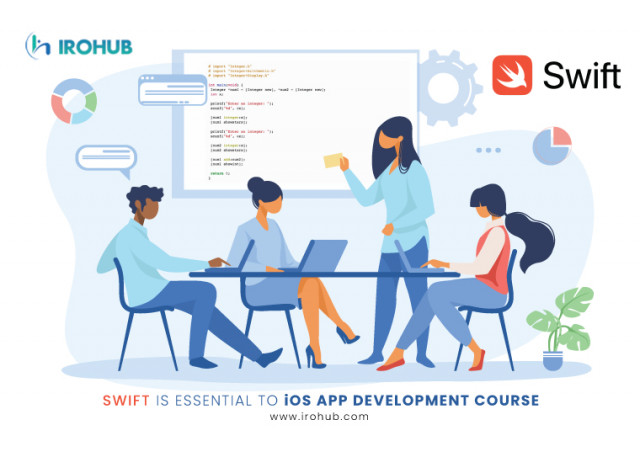Swift is a general-purpose, object-oriented, multi-paradigm, operative, powerful and block-structured language. It is the result of the most advanced analysis on programming languages and is built using a modern strategy to save software design patterns by Apple Inc. for iOS application, macOS application, watchOS application, and tvOS application. Swift is simple to learn and implement, safe, fast and more expressive. Soon it became one of the top 5 programming languages and gained popularity among the iOS developers over the few years replacing the old school Objective C.
About Swift
Swift is a fabulous way for the iOS app development process, whether it’s for phones, desktops, servers, or/and anything extra that runs a code. The compiler is optimized for performance and the language is optimized for development, without negotiating on both. Swift is even friendly to new programmers. Writing Swift code in a playground lets you explore with code and see the results instantaneously, without the burden of building and running an app. Swift code is compiled and optimized to get the most out of it. The syntax and standard library have been created based on the guiding principle that the reasonable way to write your code should also be the most beneficial. The code is not just simpler to write, but more comfortable to read and maintain as well. Swift has been years in the making, and it continues to emerge with new characteristics and abilities.
Evolution timeline of Swift
Swift language was developed by Chris Lattner to resolve difficulties that existed in Objective C. It was introduced at Apple’s 2014 Worldwide Developers Conference (WWDC) with version Swift 1.0.
- Then we have the version 1.2 during 2014
- Version 2.0 at WWDC, 2015
- Version 2.2 was made open source under Apache license on December 3rd, 2015
- And finally the current version is 4.2 and the current beta version is 4.3.
General Features of Swift
The Protocol-Oriented Programming Paradigm in Swift
Protocol-Oriented Programming is a novel programming standard adopted from the release point of Swift 2.0. In this procedure, design protocols are comparable to classes but this serves with more reliability as compared to object-oriented programming. Since the thoughts like structs and enums don’t work properly as a struct cannot inherit from another struct, neither can an enum inherit from another enum. So inheritance which is one of the necessary object-oriented notions cannot be implemented to value types.
Optional type variable in Swift
There is a practice in Swift that each declared variable needs to have a value incorporated with them while running the application. In case the variable’s content is found null or nil, the app will malfunction. So iOS developers came up with a clarification in a very tranquil and thoughtful manner with a theory they called as optional. While declaring any variable you can secure it an optional type. A variable declared with an optional type is usually a safe variable.
Decodables, Decodables, and Delegate methods
In most apps or rather say every day to day applications use data and, the data security is a primary matter. The apps require a network connection, for saving data to disk, or submitting data to APIs and services. These tasks data are obliged to be encoded and decoded to and from a standard form while the data is being conveyed. Apple has made their libraries to meet with these issues i.e Encodable and Decodable.
Concluding note
Swift has been in the making for years, and it continues to evolve with new peculiarities and inclinations. make your goals for Swift ambitious with the iOS training in Kochi at iROHUB Infotech.








Post Comments (0)